One fewer DNFs than last month! That’s progress, right?
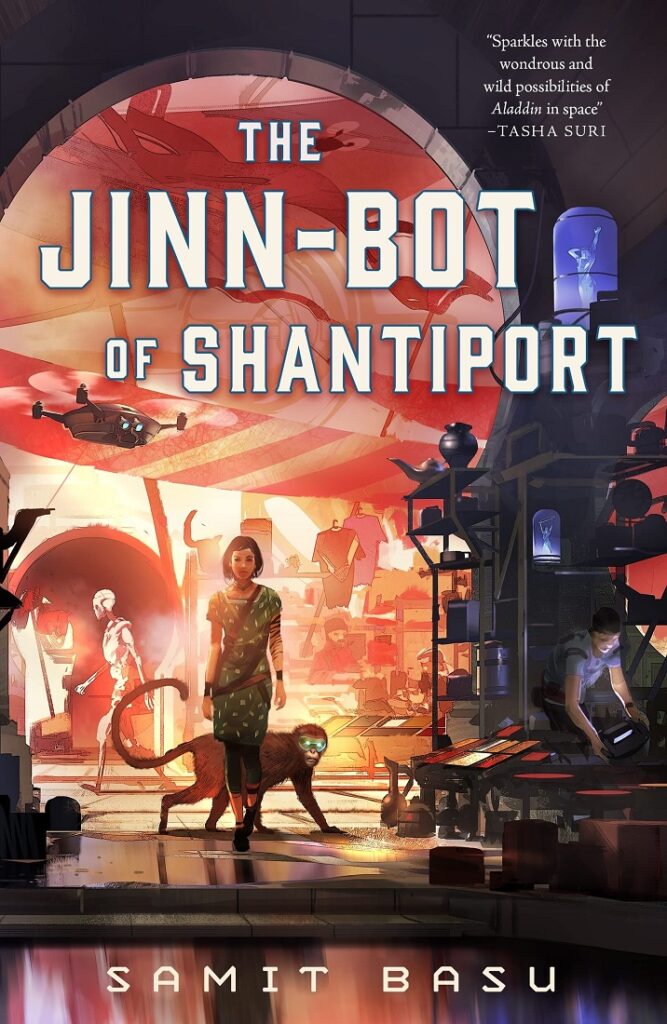
Genres: Sci Fi
Representation: Brown cast
ISBN: B0BQGGLR6V
Goodreads

Shantiport was supposed to be a gateway to the stars. But the city is sinking, and its colonist rulers aren’t helping anyone but themselves.
Lina, a daughter of failed revolutionaries, has no desire to escape Shantiport. She loves her city and would do anything to save its people. This is, in fact, the plan for her life, made before she was even born.
Her brother, Bador, is a small monkey bot with a big attitude and bigger ambitions. He wants a chance to leave this dead-end planet and explore the universe on his own terms. But that would mean abandoning the family he loves―even if they do take him for granted.
When Shantiport's resident tech billionaire coerces Lina into retrieving a powerful artifact rumored to be able to reshape reality, forces from before their time begin coalescing around the siblings. And when you throw in a piece of sentient, off-world tech with the ability to grant three wishes into the mix… None of the city's powers will know what hit them.
I received this book for free from the publisher via NetGalley in exchange for an honest review. This does not affect my opinion of the book or the content of my review.
I don’t think Jinn-Bot is a bad book at all, but it’s just not holding my attention. I found Lina a really hard character to connect with – she feels very remote, possibly because we’re never getting the story through her POV? – and while I loved the idea of Bador (and his eye-emojis!) I was frustrated by his very juvenile obsession with becoming a robot gladiator to the exclusion of all else. I sympathised with his difficulties with his family – who, whatever they say, do treat him differently because he’s a robot – and his passion for robot rights, but for crying out loud, who cares about the robot tournament?! Especially with everything else going on!
I made it to 56% – because it is very readable; Basu’s prose is nice and easy, and Shantiport, the setting, feels wildly alive. But there was so much telling-not-showing, and when the ‘Jinn’ does come into play, I was disappointed – not by the Jinn itself, precisely, so much as how Lina and Basu’s mother used it so carelessly while purporting to be an expert on political revolutions. The (looong) conversation where she explains all the reasons they can’t wish for Very Good Things – like ending poverty, etc – basically comes down to ‘these kinds of changes have to happen slowly and organically’. But like – no??? They don’t??? Not when you literally have three wishes with virtually no limits??? At that point, you ARE allowed to wish for things like world peace. (Just make sure to put in a lot of caveats, so you don’t end up with a Je Souhaite situation.)
And then the mother’s wish goes horribly wrong, because of course it does, and it all felt so – if you’d stopped to think for three seconds you could see how the wish was going to go wrong, but no, she knows best, to the point that she won’t allow the others to make wishes to better the world. Maddening, and arrogant, and then there’s the pity-party afterwards, and there just wasn’t anything keeping me invested in the characters and their story.
I think this could be very fun for the right reader, but alas, I am not that reader.

Genres: Queer Protagonists, Sci Fi
Representation: Queer MC, genderfluid love interest
ISBN: 0593598547
Goodreads

Greek mythology takes to the stars in this steamy, sci-fi reimagining of the tale of Ariadne and Dionysus—the first book in a snarky, queer, lushly romantic duology set in a galaxy of monstrous mortals, bloodthirsty gods, and love fierce enough to shatter the cosmos.
Raised amongst monsters, Ariadne Tholos, Crown Princess of the interstellar Cretan Empire, fears nothing more than becoming one herself. But trapped within the labyrinth of imperial politics and the puritanical restrictions of her father, King-Emperor Minos—and his totalitarian regime of militarized death cultists—she might not have another option. When the chance arises to take her fate into her own hands, Ariadne seizes it, only to find herself on the run—injured, alone, and in desperate need of a miracle.
Enter Dionysus—the exiled god of wine, madness, and revelry. He needs a Cretan royal to join his cult in order to end his banishment and return home to Olympus. Their meeting is the opportunity he’s been waiting for, but there’s just one problem: the Cretans are heretics, and Ariadne is no exception.
With a vengeful Minos closing in, Ariadne strikes a bargain. She’ll marry Dionysus and “join” his cult. In exchange, he’ll hide her away in the only corner of the galaxy beyond Minos’s reach: Olympus itself. But while Ariadne can handle the deadly politicking of the Olympians, a life of repression has left her unprepared for how powerfully Dionysus’s uninhibited debauchery will call to her darkest desires, and make her question parts of her identity she’s kept locked away her entire life.
I received this book for free from the publisher via NetGalley in exchange for an honest review. This does not affect my opinion of the book or the content of my review.
The publication of Crown of Starlight has been cancelled, due to some terrible behaviour on the part of the author; if you haven’t heard all about it, you can watch Xiran Jay Zhao’s summary here. I’m not going to go into it here, except to say that Corrain fucked around and found out, and I have no sympathy.
Lots of early readers have since DNFed and/or one-starred Crown of Starlight based on Corrain’s awful behaviour, but I am here to assure you that even if Corrain were a pinnacle of virtue, this book is still dreadful. Writing in first-person was a terrible choice, because the 21yo MC reads like the most dramatic kind of 16yo, complete with over-use of italics because everything. is so. dramatic. You can all but hear her rolling her eyes at absolutely everything. Nothing about her appealed as a character; she’s ridiculously bland, with no interests or goals of her own, and no personality except for vaguely questioning The Way Things Are. (Which is something I can’t stand: WHY are you questioning it, when you were raised inside this system? What makes you different? What influences were you exposed to that made you realise things could/should be otherwise? A rebellious tutor, banned books, what??? But no, no explanation.)
The worldbuilding was boring and full of holes – and for the record, having your MC ruminate on/acknowledge the contradictions and holes in your worldbuilding? Doesn’t fix them, or undo the fact that you’re just bad at building worlds and cultures. Where does the purity culture (particularly for women) come from? Why are all these futuristic space empires named after parts of ancient Greece? If your dad despises you and wants to kill you, why can’t he, when your younger sister would clearly make an heir more to his taste? He’s worried about bad PR – but he managed to turn his entire empire against the gods because he has the best PR people ever, so??? He could just make your death look like an accident, anyway, if he didn’t want people thinking he had a hand in it!
None of it makes sense, and it’s not even interesting. Take out the spaceships, and you could easily forget Crown of Starlight is some kind of scifi; there’s no cultural or technological quirks to make you feel that this is the far-future, or at least a different, unique universe/galaxy from our own. It’s generic as fuck, a smudgy sketch that hasn’t been filled in and painted.
I have no idea why this was getting the hype it was, and I don’t think we’re missing anything by having its publication cancelled.
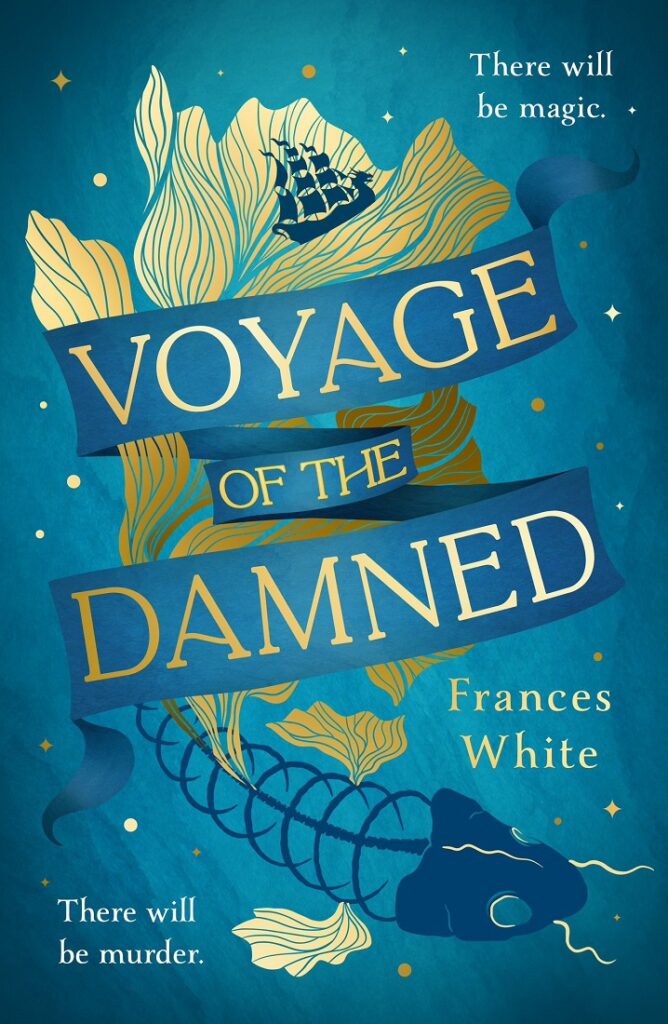
Genres: Fantasy, Queer Protagonists
Representation: mlm MC
Published on: 18th January 2024
ISBN: 1405956607
Goodreads

For a thousand years, Concordia has been able to maintain peace between its provinces, protected by a wall known as the Bandage. To mark this incredible feat, the emperor's ship embarks upon a twelve-day voyage to the Goddess's mountain.
Aboard are the heirs of the twelve provinces of Concordia, each graced with a unique and secret magical ability known as a Blessing.
Except one: Ganymedes Piscero - class clown, slacker, and all-round disappointment.
When a beloved heir is murdered, everyone is a suspect. Stuck at sea and surrounded by powerful people without a Blessing to protect him, odds of survival are slim.
But as the bodies pile higher, Ganymedes must become the hero he was not born to be. Can he unmask the killer and their Blessing before this bloody crusade reaches the shores of Concordia? Or will the empire as he knows it fall?
I received this book for free from the publisher via NetGalley in exchange for an honest review. This does not affect my opinion of the book or the content of my review.
My expectations were low, because my book-bestie, who’d read Voyage of the Damned earlier this year, warned me that it wasn’t really to her taste and probably wouldn’t be to mine either… But eek, I was still expecting better then that.
Is this really Adult??? Because it reads like (not great) YA, with embarrassingly simplistic worldbuilding dropped on us in brick-like info-dumps – and plenty of that worldbuilding makes no sense or contradicts itself, just in the first two chapters.
The empire (and why, why did you name your emperor Eugenios??? I cannot help misreading it as Emperor Eugenics, every time!) is divided into 12 provinces. Each is named for a specific animal, the people there all have the same magical hair colour (like green or blue or purple) and fit a single stereotype, and each province has one industry with which they contribute to the empire.
This is not the level of worldbuilding I expect from Adult SFF. Not even close.
It gets worse: each province is ruled by the Blessed, effectively a noble family blessed with a magical power by the Goddess. But the Blessing only goes to one child in a generation – it’s hereditary, in that it follows the bloodline, but it can manifest in any child of the bloodline, so the eldest in the family won’t necessarily be the one Blessed. And the one with the Blessing is the heir, of course.
Emperor Eugenics was smart enough to just have one kid, guaranteeing that she would inherit the imperial Blessing. Do other Blessed do this? No, they have multiple children. Perhaps to increase the chances of producing a really good heir for the Blessing to select? No, because incompetent or outright bad Blessed are known to happen, in which case a regent will rule for them. How that fits with the idea that only Blessed can rule and/or Blessings indicate that an heir is worthy, I don’t understand.
Oh, and it’s Very Super Bad for Blessed to have illegitimate children, because what if one of them inherits the Blessing??? A thousand years ago, an illegitimate Blessed tried to kill the Emperor! So illegitimate Blessed are bad!
…Except one of the 12 heirs on this cruise is illegitimate. But they made an exception for him! Because he runs the empire’s armies. Despite only being 14. No regent despite his age, and no worries that the Evil Illegitimate Kid has total control of the military.
OKAY THEN.
Did I mention that when the Blessing manifests in a kid, their Blessed parent loses the power??? And that when the Blessings have manifested in all 12 of the latest generation – even if one of the heirs is SIX YEARS OLD – the parents step down and their kids are now in charge???
Picture me tearing my hair out, please.
The prose itself is very, very basic, and it doesn’t help that Ganymedes is not nearly as funny or charming as White thinks he is – he’s just annoying. Though he has good reason to try and ostracise the rest of the Blessed, it’s his internal monologue – not the actions/behaviour he feels he has to engage in – that make him read as kind of a dick. The frat boy vibes were pretty strong here. There’s absolutely nothing engaging about his narration – this is definitely one of the times when a story should have been in third-person rather than first- – and I could feel my eyelids getting heavier as I read, bored out of my damn skull by all of it.
MASSIVE fail.
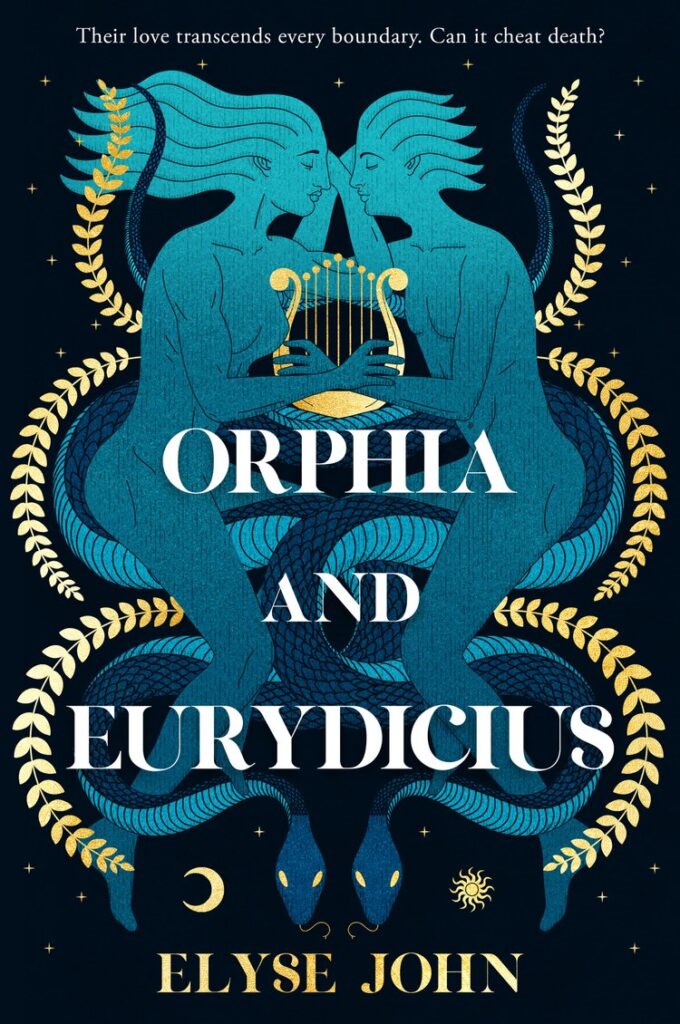
Genres: Fantasy, Queer Protagonists
Representation: Bisexual genderqueer/gender-nonconforming MCs
ISBN: 1460715578
Goodreads

A stunning, enthralling story about unconventional love, the power of creativity and the courage of women who struggle to make their voices heard - for fans of Jennifer Saint, Madeline Miller and Pat Barker.
Their love transcends every boundary. Can it cheat death?
Orphia dreams of something more than the warrior crafts she's been forced to learn. Hidden away on a far-flung island, her blood sings with poetry and her words can move flowers to bloom and forests to grow ... but her father, the sun god Apollo, has forbidden her this art.
A chance meeting with a young shield-maker, Eurydicius, gives her the courage to use her voice. After wielding all her gifts to defeat one final champion, Orphia draws the scrutiny of the gods. Performing her poetry, she wins the protection of the goddesses of the arts: the powerful Muses, who welcome her to their sanctuary on Mount Parnassus. Orphia learns to hone her talents, crafting words of magic infused with history, love and tragedy.
When Eurydicius joins her, Orphia struggles with her desire for fame and her budding love. As her bond with the gentle shield-maker grows, she joins the Argonauts on their quest for the Golden Fleece. Facing dragons, sirens and ruthless warriors on the voyage, Orphia earns unparalleled fame, but she longs to return to Eurydicius.
Yet she has a darker journey to make - one which will see her fight for her love with all the power of her poetry.
PRAISE
'Orphia and Eurydicius spins a bewitching tale of courage, love, and defiance, giving voice and agency to the women in Greek tales who are so often defined by the men they are associated with. Orphia's poetry may bring the gods to tears; John's words have the same effect on us mere mortals. Tragic and triumphant, a must-read!' Andrea Stewart, author of The Bone Shard Daughter
My reading experience with this book has been like trying to swim through molasses – sweet, but an exhausting struggle. The prose is beautiful, but the book feels incredibly preachy, with a very strong ‘women good, men bad’ theme – not all-encompassing; Eurydicius, a submissive, gentle/effeminate/feminine man, is lovely. But the other male characters are varying levels of asshole, while all the women are perfect, albeit oppressed. This is most obvious with the book’s treatment of Hera; while I’m tired of seeing Hera depicted as a bitter harpy, neither do I love seeing her revered as an uncomplicatedly loving Queen of Heaven, soft and gentle and mothering, in contrast to her brutish, misogynistic husband. Like, don’t get me wrong: I think Zeus is a dick. But Hera cursed his rape victims and helped kick off the Trojan War because she wasn’t judged as beautiful as the literal goddess of beauty: she’s not a perfect fluffy angel. And – we see Aphrodite in honest to gods chains, held by her husband. The misogyny is just – so heavy-handed that it almost becomes a parody.
Orphia and Eurydicius also taps heavily into the whole Mother Earth goddess thing, with major Sacred Feminine vibes, and that kind of thing just gives me major ick these days – it’s too often transphobic, unintentionally or not, and the repeated insistence here that women = good/men = bad felt like it was going in that direction. Despite the fact that this book purports to be an exploration of genderqueerness, or gender-nonconformity, it still feels very tied into biology.
And to be honest, I’m not sure Orphia is a particularly ground-breaking or impressive character to a modern reader. She’s a woman who doesn’t want to be treated as a possession, an object, who wants to be famous and heroic. Okay…? That would definitely make her an oddity in ancient Greece (well, no, it probably wouldn’t, but the fact that she gets to act on it would) but it’s not that interesting from where I’m standing. I guess the fact that she’s sexually dominant is a bit more LE GASP, but again, I just want to shrug and ask – yeah? So? It doesn’t feel shocking or groundbreaking – we’re not even talking BDSM or D/s levels of dominance; it’s more that Orphia is comfortable with her sexuality and in asking for what she wants.
I loved the passages where Orphia was performing poetry; John’s gorgeous, descriptive prose really got to shine there, especially since she took the smart route of describing the poems and songs rather than trying to write them. (Mostly – the poem Orphia writes and performs to prove she’s ready to leave the Muses was actually written out for us, which I think was a mistake, because it didn’t stand out as anything very special. Between Carol Ann Duffey and what I shall collectively call Tumblr Poetry, I’ve seen much, much better poems about Greek myths.) And I would have liked to get to the point where Orphia has to rescue Eurydicius from the Underworld – I’m willing to bet that would have been beautifully done, too.
But at the 52% mark – and it taking me from May till now to get that far! – I just have to give up. The prose is stunning, but I don’t care about the story, and reading it feels like work, not enjoyable.
I may come back to it at some point – I really loved The Councillor by the same author, which was what made me so excited for this book in the first place, and makes me feel like I ought to give Orphia and Eurydicius another chance. But it’s not working for me right now. I jumped through hoops to get the Australian edition; maybe when it comes out in the US next year I’ll try again. An extra half-star for the prose, but for now, it’s a DNF.
May next year bring us more 6-star reads and fewer DNFs!
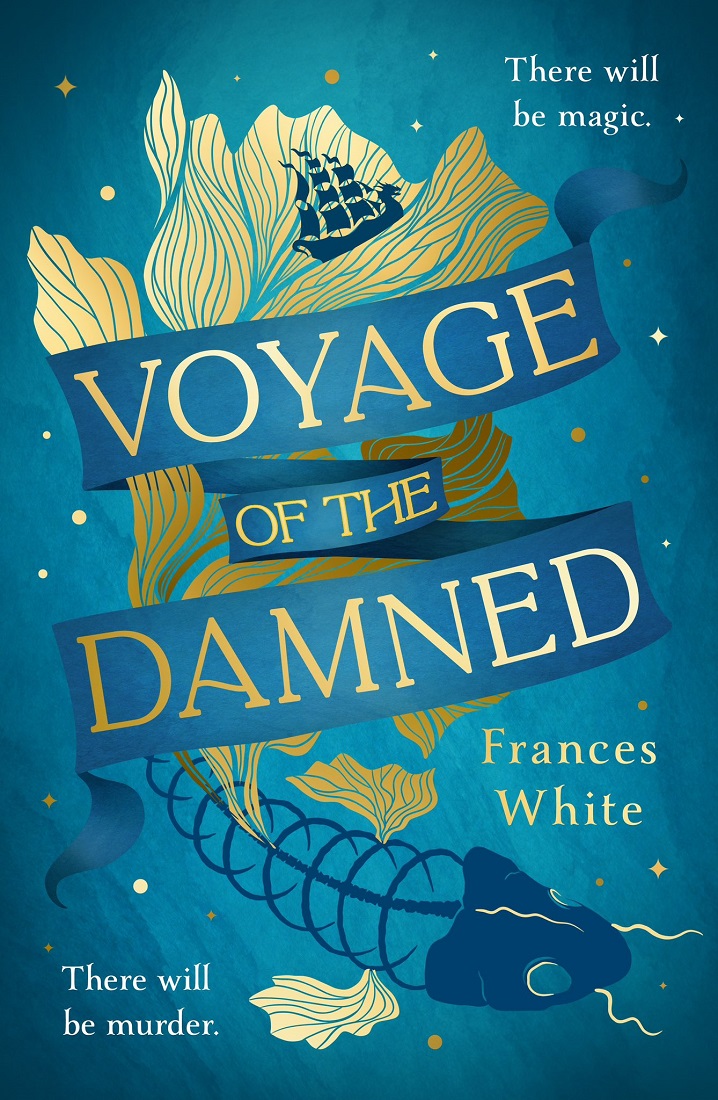


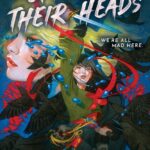

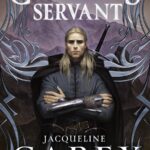

Welp, time to take Voyage of the Damned off my wishlist.
Maybe try taking it out from a library, if that’s an option for you??? But I definitely wouldn’t preorder it.
Oh no, I’m reading Jinn-Bot now and it’s fine so far (I’m almost 1/3 in) but your commentary doesn’t seem promising… we’ll see.
Your reviews of Crown of Starlight and Voyage of the Damned are hilarious though. I’m extra glad I skipped my Illumicrate sub in January now!
Fingers crossed that you’ll enjoy it more than I did!
I hit my ‘skip renewal’ on Illumicrate for January SO FAST XD Delighted to hear the reviews amused, though!
I actually just decided to DNF since it felt like a chore to pick it up. I was so confused with that first scene with Lina and the Not-prince and I realized I just couldn’t understand any of the characters’ motivations or choices, and I’m a big character-drive reader. I’d still like to try Basu’s previous book eventually though.
Yeah, whenever a book feels like a chore, it’s time to quit. But his debut is on my tbr too, it sounds really interesting!